
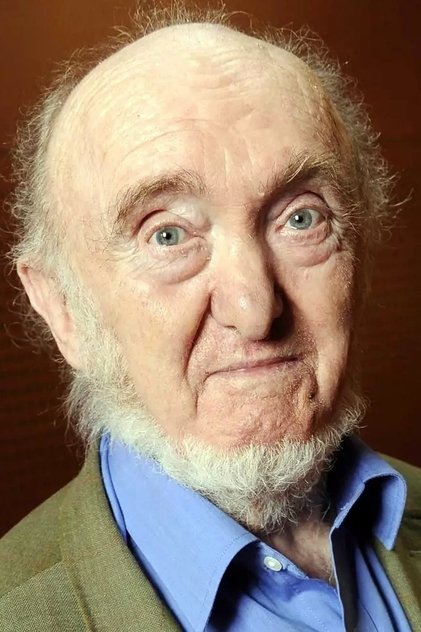
Albert Jacquard
Born: December 23, 1925
Died: September 11, 2013
in Lyon, Rhône, France
Died: September 11, 2013
in Lyon, Rhône, France
Albert Jacquard (23 December 1925 – 11 September 2013) was a French geneticist, popularizer of science and essayist.
He was well known for defending ideas related to science, degrowth, needy persons and the environment. He was 10 years an active member of the French communist party (PCF).
He was born in Lyon to a catholic and conservative family from the region of Franche-Comté (east of France). At the age of nine, he was disfigured after a car accident in which his brother died. In 1943, he earned two baccalaureates in mathematics and philosophy. In 1948, he earned a master's degree in public factory engineering from the French École Polytechnique and joined the French Institute of statistics.
In 1951, he entered the French tobacco monopoly SEITA (which merged with its Spanish counterpart Tabacalera to form Altadis in 1999) as an organisation and method engineer. Then, he worked as a rapporteur in the French Court of Financial Auditor (equivalent to the US Government Accountability Office) and as a senior executive in the French Health ministry. In 1966, he went to Stanford University to study population genetics as a Research worker. Back in France in 1968, he joined French Institute for Demographic Studies as supervisor of the genetics department. In 1973, he was appointed expert in genetics in the World Health Organisation. He retired in 1985.
While he was still working in the World Health Organization, he taught as visiting professor at several universities such as the University of Geneva in Switzerland (1973–1976), Pierre and Marie Curie University in Paris (1978–1990) or the Catholic University of Louvain in Belgium (1979–1981). As a recognition for his work, he was awarded the French Légion d'honneur, the French Ordre national du Mérite and the Fondation de France scientific medal.
"I have no solution: I don't intend to build the society of tomorrow. I just want to show that it must not resemble the society of today."
While he was part of the French Consultative Committee of Ethics (Comité consultatif national d'éthique) in the early 1990s, he took a strong stand against commercial use of the human genome.
He was very close to the anti-globalization movement and regularly came to the defense of illegal immigrants and homeless people in France.
He wrote several books to expose his views and share his experience with new generations. He made a variety of public statements in favor of choosing Esperanto as a universal second language in contradiction to tendencies in Europe to use English as a second language.
Source: Article "Albert Jacquard" from Wikipedia in English, licensed under CC-BY-SA 3.0.
He was well known for defending ideas related to science, degrowth, needy persons and the environment. He was 10 years an active member of the French communist party (PCF).
He was born in Lyon to a catholic and conservative family from the region of Franche-Comté (east of France). At the age of nine, he was disfigured after a car accident in which his brother died. In 1943, he earned two baccalaureates in mathematics and philosophy. In 1948, he earned a master's degree in public factory engineering from the French École Polytechnique and joined the French Institute of statistics.
In 1951, he entered the French tobacco monopoly SEITA (which merged with its Spanish counterpart Tabacalera to form Altadis in 1999) as an organisation and method engineer. Then, he worked as a rapporteur in the French Court of Financial Auditor (equivalent to the US Government Accountability Office) and as a senior executive in the French Health ministry. In 1966, he went to Stanford University to study population genetics as a Research worker. Back in France in 1968, he joined French Institute for Demographic Studies as supervisor of the genetics department. In 1973, he was appointed expert in genetics in the World Health Organisation. He retired in 1985.
While he was still working in the World Health Organization, he taught as visiting professor at several universities such as the University of Geneva in Switzerland (1973–1976), Pierre and Marie Curie University in Paris (1978–1990) or the Catholic University of Louvain in Belgium (1979–1981). As a recognition for his work, he was awarded the French Légion d'honneur, the French Ordre national du Mérite and the Fondation de France scientific medal.
"I have no solution: I don't intend to build the society of tomorrow. I just want to show that it must not resemble the society of today."
While he was part of the French Consultative Committee of Ethics (Comité consultatif national d'éthique) in the early 1990s, he took a strong stand against commercial use of the human genome.
He was very close to the anti-globalization movement and regularly came to the defense of illegal immigrants and homeless people in France.
He wrote several books to expose his views and share his experience with new generations. He made a variety of public statements in favor of choosing Esperanto as a universal second language in contradiction to tendencies in Europe to use English as a second language.
Source: Article "Albert Jacquard" from Wikipedia in English, licensed under CC-BY-SA 3.0.
Movies for Albert Jacquard...
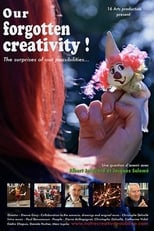
Title: Our Forgotten Creativity!
Character: Self
Released: November 16, 2015
Type: Movie
This independant documentary linking poetry, artistic testimonies and performances offers a positive, innovating outlook on our creativity. It exposes the obstacles that may hinder it as well as the powerful assets creativity provides throughout our lives and in many different fields. Catherine Vidal, neurobiologist and director of the Pastor Institute, Albert Jacquard, geneticist and humanist, Jacques Salomé, social psychologist, Cédric Chapuis, director of performing Arts share their convictions regarding this topic essential to individual and collective development. The film offers a constructive vision inviting viewers to explore their own creativity and emphasizes the importance of placing it at the heart of children’s development through an education based on happiness.

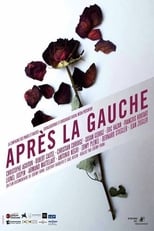
Title: Après la gauche
Character: Self
Released: January 6, 2011
Type: Movie
What does it mean to be leftist today? The film tries to answer this essential question by interviewing great figures of contemporary thought. From the disappearance of the USSR to the latest financial crisis, Après la gauche is a journey through 20 years that have upset the left, but it's - above all - an act of resistance.

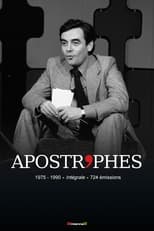
Title: Apostrophes
Character: Self
Released: January 10, 1975
Type: TV
Apostrophes was a live, weekly, literary, prime-time, talk show on French television created and hosted by Bernard Pivot. It ran for fifteen years (724 episodes) from January 10, 1975, to June 22, 1990, and was one of the most watched shows on French television (around 6 million regular viewers). It was broadcast on Friday nights on the channel France 2 (which was called "Antenne 2" from 1975 to 1992). The hourlong show was devoted to books, authors and literature. The format varied between one-on-one interviews with a single author and open discussions between four or five authors.

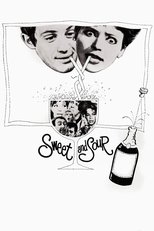
Title: Sweet and Sour
Character: Le marchand de fleurs (uncredited)
Released: September 4, 1963
Type: Movie
Gerard, a young man from a "good family" dreams of becoming an actor. To do this, he follows everywhere his sister Frédérique who is infatuated with cinéma vérité.
